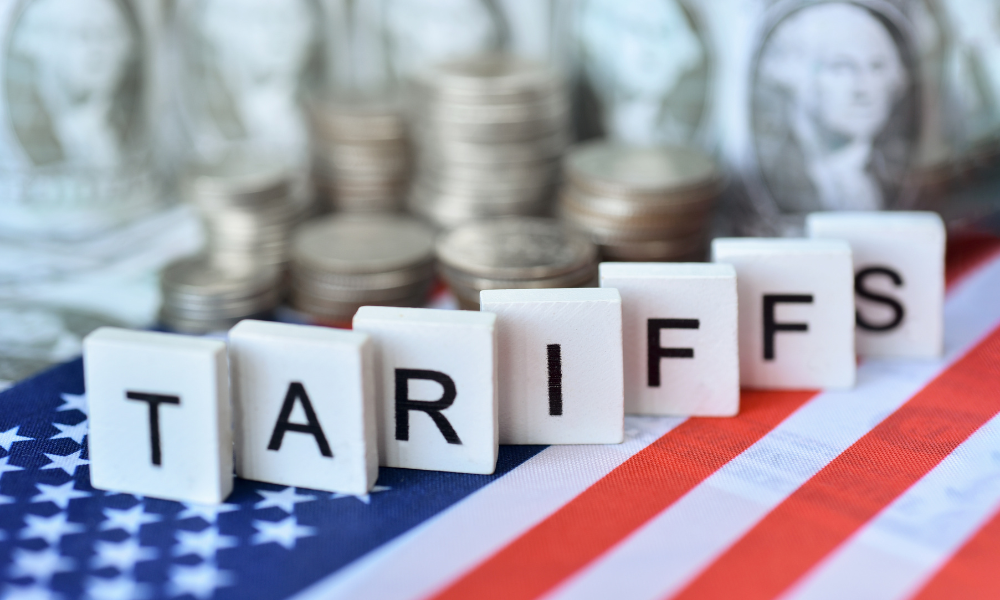Canadian finance minister says baseline tariffs are not inevitable

by Mathieu Dion and Brian Platt
Canada’s finance minister said the country can negotiate a better trade deal with the Trump administration than other nations have received, pushing back on the idea that it may have to settle for a new baseline tariff on all exports to the US.
“We buy more from the US than China, Japan, the UK and France combined, so we’re not in the same league as others,” Francois-Philippe Champagne said in an interview.
“The competitiveness of North America depends on what happens between Canada and United States,” he said, pointing to Canada’s wealth of critical minerals and energy, the integrated supply chains across the border and its status as the largest supplier of aluminum to the US.
Canadian Prime Minister Mark Carney and US President Donald Trump have agreed to try to hammer out a deal by July 21 to govern the two countries’ trade relationship, which saw them exchange more than $900 billion in goods and services last year.
The US had a trade deficit of $36 billion with Canada in 2024, according to US government data, mostly because it guzzles millions of barrels a day of Canadian oil and fuels. Excluding energy, the US had a trade surplus with its northern neighbor.
The US, Canada and Mexico have an existing trade pact that Trump signed during his first term. But the president paid little heed to it as he placed import taxes of 50% on foreign steel and aluminum, along with levies on cars and trucks.
“The endgame for us is to have the best possible deal for Canadian workers and the Canadian industry,” Champagne said. “We have, compared to many countries that are negotiating with the United States, already a trade agreement in place.”
The UK agreed to a framework that allows manufacturers to export as many as 100,000 vehicles a year to the US at a 10% tariff rate, but a higher tax remains on British steel. Under an agreement with Vietnam, the US will slap a 20% tariff on imports from the Asian country, Trump said this week. Meanwhile, the European Union is willing to accept a trade arrangement with the US that includes a 10% tariff on many of its exports, people familiar with the matter told Bloomberg News recently.
Still, Carney and other Canadian officials have said their position is that all new US tariffs should be lifted as part of any deal.
Champagne announced Sunday that Canada has scrapped its 3% digital services tax on technology companies — just hours before the first payments were due. The move came after Trump terminated trade discussions with Canada based on what he called an “egregious” tax, which would have earned the Canadian government more than C$7 billion ($5.2 billion) over five years, according to an earlier estimate from the country’s Parliamentary budget officer.
“The digital services tax was always part of a number of things that were to be discussed,” Champagne said. He also rejected the idea that it could be reintroduced at a later date.
“We canceled it,” he said. “The OECD and other countries will probably continue their discussions around that. But for us, we took a strategic decision because we want to get to a comprehensive agreement with the United States on security and on the economic front.”
Champagne insisted that Canada’s dairy and poultry supply management system isn’t up for negotiation, despite the fact that Trump has said he doesn’t like it. “This is off the table,” he said.
That system, which controls the production of food commodities including milk, eggs and chicken, includes steep tariffs — but they’re only imposed when imports exceed a certain level. Almost all current US dairy exports to Canada enter the country duty-free.
The US negotiated higher quotas for shipping agricultural products to Canada during Trump’s first term in office.
Copyright Bloomberg News



